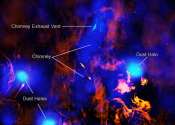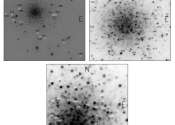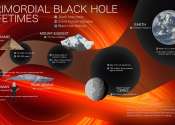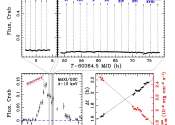The arXiv (pronounced "archive", as if the "X" were the Greek letter Chi, χ) is an archive for electronic preprints of scientific papers in the fields of mathematics, physics, astronomy, computer science, quantitative biology, statistics, and quantitative finance which can be accessed online. In many fields of mathematics and physics, almost all scientific papers are self-archived on the arXiv. On 3 October 2008, arXiv.org passed the half-million article milestone. The preprint archive turned 20 years old on 14 August 2011. By 2012 the submission rate has grown to more than 6000 per month.
- Publisher
- Cornell University Library
- Website
- http://arxiv.org/
Some content from Wikipedia,
licensed under CC BY-SA









